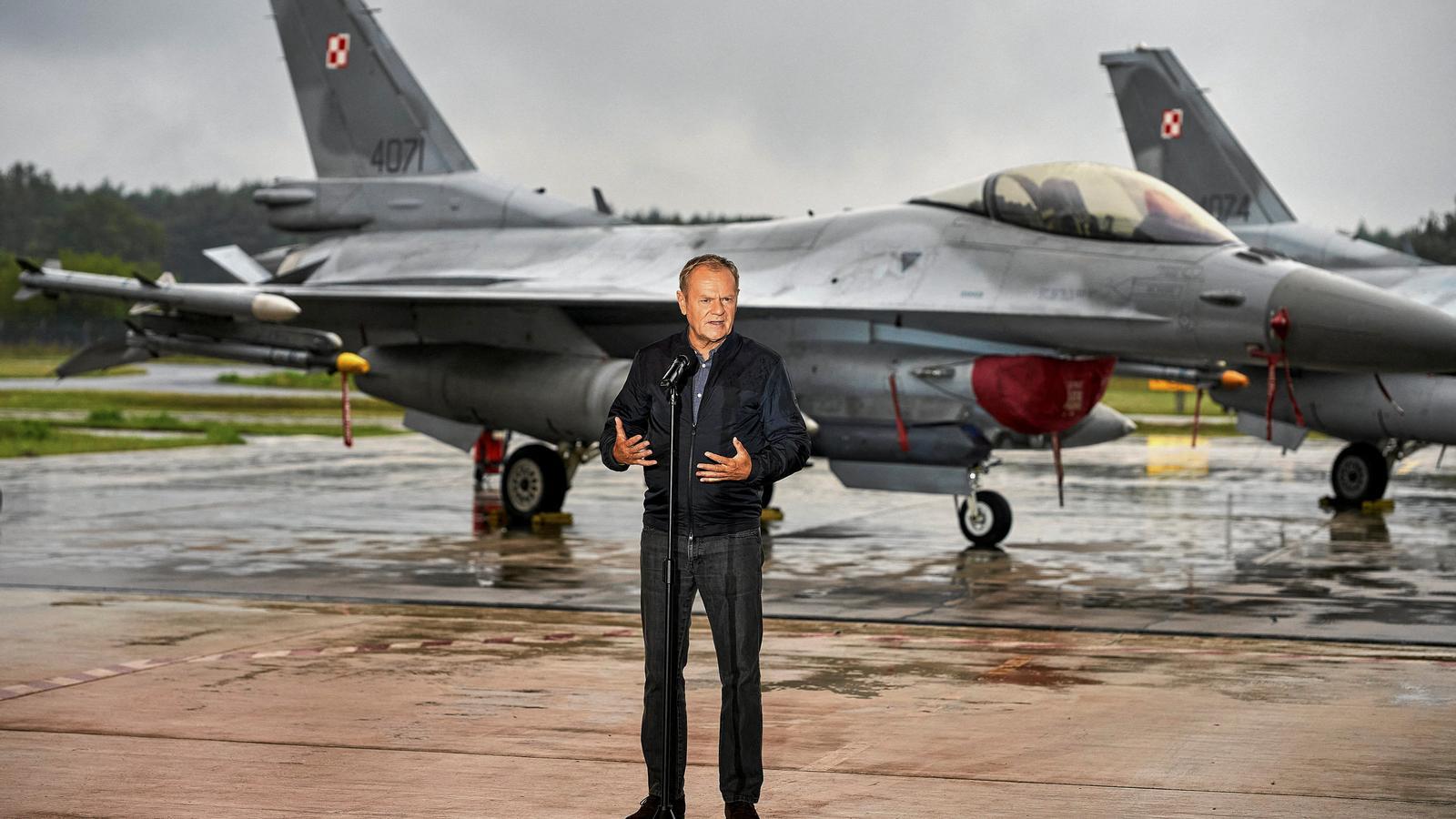Poland restricts airspace in the east of the country the day after intercepting Russian drones
Warsaw requests an extraordinary meeting of the UN Security Council following the incursion of Russian drones into its territory.

BerlinEuropean countries bordering Russia want to protect themselves after the violation of their airspace. Poland announced Thursday that it will restrict air traffic in the eastern part of the country along its border with Belarus and Ukraine, a day after shooting down several Russian drones that had entered its airspaceThe restrictions, which came into effect Wednesday night, will remain in place until December 9, the Polish Air Traffic Control Agency announced in a statement. At the request of the operational command of the armed forces, Poland has banned drone flights and introduced restrictions in this border area that primarily affect small, non-commercial air traffic. However, they will not affect passenger traffic.
The Polish Air Traffic Control Agency explains that the restriction was introduced to "ensure state security," in accordance with the Ministry of Infrastructure's regulation on flight restrictions for a period not exceeding three months.
Along the same lines, Latvia has announced that it will close its airspace with Russia and Belarus starting at 3:00 p.m. this Thursday and for at least a week. This was announced by the Commander-in-Chief of the Latvian Armed Forces, General Kaspars Pudans, who stated that the closure will affect a 50-kilometer zone and up to an altitude of 6,000 meters, and that civil aviation authorities will officially inform all aircraft entering or planning to enter Latvian airspace. International flights, which operate above that altitude, will not be affected by the closure.
The measure to close the airspace, which Riga justifies by Wednesday's incident in Poland, will allow the Latvian armed forces to "consider as a target" the possible appearance of an aircraft in the country's airspace that is not an ally or that has not coordinated with the authorities. "We see that, in the event of suspicious signals in our airspace, both in Lithuania and Latvia, NATO air forces are prepared to take off and, if necessary, shoot down drones," he explained.
In parallel, Warsaw requested an extraordinary meeting of the UN Security Council following "Russia's violation of Polish airspace," the Polish Foreign Ministry reported on X. "Putin is testing us. This is a test for the entire world," Polish Foreign Minister Radosław Sikorski declared on RMF FM on Thursday. With the meeting, Warsaw intends to "draw the attention of the entire world to this unprecedented attack by Russian drones against a member state not only of the UN, but also of the European Union and NATO," the Polish foreign minister said.
During a visit to the Lask Tactical Air Base, Polish Prime Minister Donald Tusk thanked the Polish and allied pilots for their intervention during the Russian drone incursions, calling them "heroes." "The Polish pilots, together with their allies, have approved the further scrutiny, for having protected Polish skies from a Russian provocation last night [Wednesday]. "They are our heroes!" Tusk wrote on social media. The soldiers at this base are F-16 pilots and are involved in neutralizing drones.
"Poland will not be intimidated by Russian drones," Polish President Karol Nawrocki said during a visit to the Poznań-Krzesiny Tactical Air Base. Nawrocki, who is also not a member of the armed forces, believes that "this Russian provocation is nothing more than an attempt to test Poland's response capacity."
Call for a "strong response" from Brussels
The foreign ministers of Lithuania, Poland, and Ukraine—the so-called Lublin Triangle—strongly condemned the recent intrusion of Russian drones into Polish territory on Thursday. "This is a deliberate and coordinated attack that constitutes an unprecedented provocation and an escalation of tension," the Triangle leaders said in a joint statement.
Warsaw, Kiev, and Vilnius called on their partners to "urgently strengthen Ukraine's air defenses and support Lithuania and Poland in their efforts to protect the eastern flank of NATO and the EU." "Only an adequate and decisive response will prevent further escalation," the three ministers warned.
On Tuesday night, Russian drones violated Polish airspace in an unprecedented manner, causing material damage but no casualties. It was the first time that Russian drones had been shot down over the territory of a NATO member since the start of Russia's invasion of Ukraine in February 2022.
Moscow denies that it intended to attack targets in Poland and claims that Warsaw has no evidence that the drones were . During the night, 19 unmanned aircraft flew over Polish territory. So far, the wreckage of 16 drones has been found, and the Polish military and emergency services continue to search for the remaining aircraft.
Polish and allied aircraft took part in the defense operation, including Dutch F-35s and F-16s, MI-24, MI-17, and Black Hawk helicopters. Saab and AWACS aircraft were also activated, the Polish government reported.
At Poland's request, NATO on Wednesday activated Article 4 of the North Atlantic Treaty, which requires member states to consult each other in the event of a threat. "This is the closest we've come to open conflict since World War II," Tusk said Wednesday, although he also noted that he has no reason to believe we are "on the brink of war."
